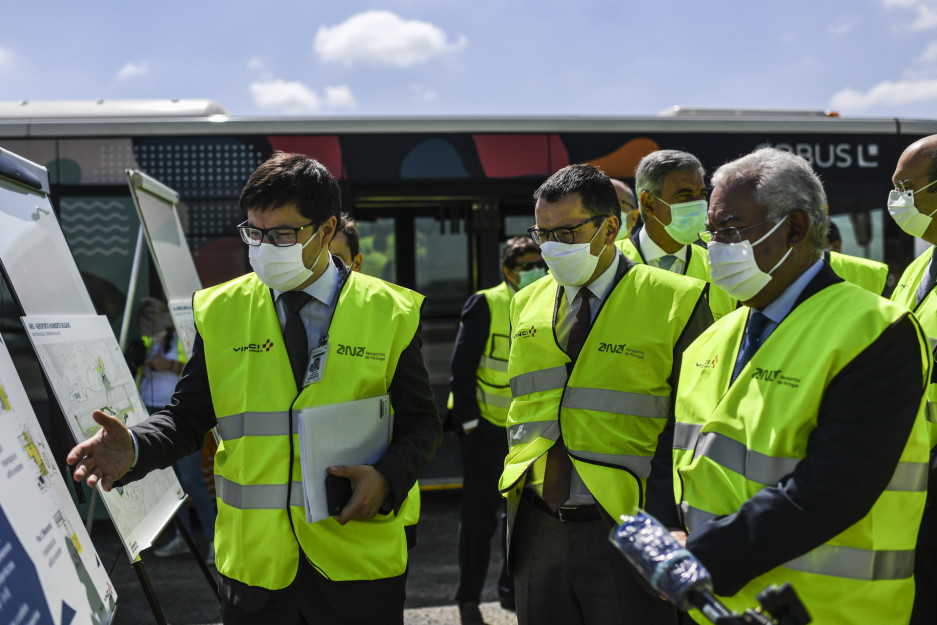
Positive Mobility
eMagAfter the health crisis: the environmental imperative

As I write this editorial, four billion people are, or have been, living under lockdown in response to the Covid-19 pandemic. This is a health crisis without parallel in modern times, bringing in its wake a financial crisis on a scale we are only just beginning to gauge.
At VINCI Concessions our operations have of course felt the impact of these events. While strictly enforcing the health protection measures put in place by governments in each country, our teams have been working flat-out to ensure the continuity of the public service mission we provide: keeping open and operational the air, road and rail infrastructures that are vital to maintaining essential travel in the regions that we serve, ensuring transport for health workers and patients, travel for professionals involved in combatting the crisis and free-flowing supply lines for essential food and equipment. Traffic is now progressively building up again at all our concessions, in compliance with stringent health protection measures.
In these extraordinary times, while staying focused on the most immediate issues, I feel it is also important not to lose our ability to take a step back. To plan ahead and think about the long term. There are two observations that I consider fundamental as we start to think about life after the pandemic.
The first observation is that this crisis again underlines the critical importance of mobility in our modern societies. This is clear to see in every part of the world where a strict lockdown is in force: if people and goods cannot move freely, the economy grinds to a halt. But I firmly believe that, once this crisis is behind us, the problems so starkly revealed by the existence of supply chains overly dependent on a handful of extremely distant suppliers will not be solved by calling time on globalisation, but through an optimised form of globalisation. I can foresee reconfigured logistics channels combining quality, proximity and security through denser regional networks with source redundancy: increasingly decentralized supply networks along the internet model where, if a communications node fails, data is instantly re-routed to other nodes so it can arrive at its destination. This vision of the future will have greater need for mobility infrastructure that is more extensive, more efficient and, crucially, more responsive; that can profitably handle flows which may be less concentrated than prior to the crisis, but no less voluminous.
For territories to be able to bounce back economically and socially in tomorrow’s world, they will need these tools more than ever in their quest for sustainable development. And this is what we are gearing up for, particularly via our investments in smart infrastructure: innovative processes, applications and equipment to prevent the risk of congestion, help circuits flow more freely and adapt in real time to fluctuating flows of people and goods, their volumes, types, origins and destinations.
The second observation I want to share with you is that, behind the health crisis, the climate emergency has not vanished. An array of headline events planned for the spring of 2020, such as Earth Day, One Planet Summit and World Environment Day, would have seen international business and political leaders gathering to drive progress on this essential question. The pandemic means these events have been delayed. This should not, however, lead to public or private actors, particularly businesses, wavering in their environmental commitment.
At VINCI Concessions we have no intention of rolling back our ambitious climate strategy. We believe that, far from being incompatible, sustainable development and expanded mobility are in fact complementary concepts; indeed, they are necessary to each other. On the one hand, we are well aware that the outlook for our activities over the coming decade will increasingly be conditioned by their degree of social and environmental acceptability. On the other hand, we are convinced that true ecological and energy transition is impossible without a financial driver powerful enough to pull in the necessary innovations and investments – and therefore requires forms of mobility that are fluid and reliable.
All our initiatives align with this strategy and long-term vision. By building eco-design principles into our construction, extension and renovation projects from the outset. By ramping up the use of renewable energy and self-consumption at our platforms. By training our teams to be aware of environmental issues. But also by stepping up to the plate with positive ideas for our regulators, clients and partners; ideas like the environmental levies aligned with landing charges we have decided to promote among regulators and airlines throughout the VINCI Airports network.
Because mobility is vital to territorial economies and the lives of the people who live there, we have no choice other than to make the investments needed to provide it on a lasting basis. Far from being a constraint on our operations, adapting and innovating to protect the environment represents a vast source of opportunities: to develop new jobs and new specialities, to become more efficient and more productive, and to create lasting value.
This involves infrastructure that is efficient, emits minimal CO2 and respects its direct ecosystem; that is, in a word, resilient. Infrastructure equipped to deal with short-term and long-term crises. At VINCI Concessions, we have been working and investing with this in mind for many years. Far from hampering our ambitions, recent events have simply reinforced our belief that we need to act faster and travel further. Starting today.
Nicolas Notebaert, Chief Executive Officer of Concessions at VINCI, President of VINCI Airports and VINCI Autoroutes